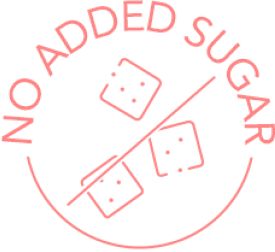Is the Hair Loss Industry Selling False Hopes?
One hair care bottle after another - you have probably tried them all and yet experienced zero reduction in hair fall. Why is that so? Have you ever wondered? The hair oil/shampoo/conditioner advertisement you watched on your television or social media promised healthy and shiny hair that could reduce your hair's fall by 10x or completely halt it.

The result? Unhealthy and frizzy hair, same or worse hair fall percentage, emotional turmoil, and financial drain.
The hair loss industry is a lucrative market built on the insecurities and aspirations of millions of people in India. Catchy ad slogans, celebrity endorsements, and convincing before and after photos mislead consumers with promises of restored hairlines and renewed confidence.
But are the hair loss industry's promises a reality, or are they merely selling us false hopes? Through this blog, we will help you uncover some of the most common lies marketed by hair care brands to help you separate fact from fiction.
Lie #1: Hair Fall is a Man's Problem
One of the most common misconceptions promoted by the hair loss industry is that hair loss primarily affects men. Advertisements often show middle-aged men struggling with male pattern baldness and receding hairlines, supporting and highlighting the stereotype that hair loss is a male issue.
However, this is far from the truth. Hair fall affects millions of women across the globe. Women experience several health conditions, such as chronic stress, hormonal imbalance, thyroid, PCOS, postpartum, and menopause, that can lead to mild or severe hair loss. Many advertisements conveniently ignore these issues, often making women feel embarrassed or not openly discussing their hair fall.
Lie #2: The Only Solution to Hair Fall is Expensive, Chemical-Laden Products
Another misleading narrative is that treating hair loss requires regularly using pricey, chemical-laden solutions. Hair oils, shampoos, conditioners, and other topical treatments are marketed as miracle cures, often with expensive price tags.
The reality is that hair loss can be caused by various factors, including genetics, hormonal imbalances, and medical conditions, which these products cannot address. Effective treatment often requires a holistic approach, including lifestyle changes and medical interventions, not just expensive potions.
Additionally, you don't have to break the bank to grow hair. You can always resort to reliable and cost-effective natural solutions. Ancient techniques of scalp massaging with natural herbs like rosemary promote healthy hair growth without any side effects.
Lie #3: Unproven Claims with Dishonest Advertisements
Every other hair care company advertisement frequently features models with thick, glossy hair, indicating that their products are solely responsible for such results.
In reality, these models often have naturally dense hair or have benefited from other treatments not mentioned in the ads. Otherwise, they are wearing wigs or hair extensions. Such ads reassure the consumers and encourage them to purchase the product without being aware of the gimmick.
This deceptive practice not only undermines consumer trust but also endorses unrealistic beauty standards.
Lie #4: Promises of Immediate Results
In an age of instant gratification, the promise of instantaneous results may sound achievable to many. Multiple hair loss products claim to deliver visible improvements within weeks.
But, it is important to note that hair growth is a slow process that requires patience and consistency. On average, hair grows about half an inch per month, and it can take several months to see noticeable changes.
The promise of quick fixes sets unrealistic expectations and often causes frustration when results are not immediate.
Actionable Advice for Healthy Hair
Following are a few key points you must know before investing in a hair care product:
- Understand your hair type and issues related to it.
- Take a realistic approach and consult a trusted hair care expert to learn about the root causes of hair loss.
- Read product ingredients and labels before purchasing it.
- Don't fall for tricky ads; instead, look for genuine consumer testimonials and feedback.
- Switch to potent natural products with no nasties or dependencies.
- Do a product patch test first to check if it works for your scalp.
- There's no magic cure for hair fall. Be patient.






